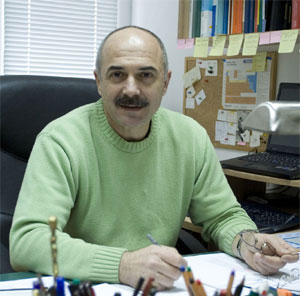Science is reaching out to small business in Bulgaria through an ambitious project for sustainable utilization of medicinal and aromatic plants this country is extremely rich of. With the help of European funds, a Competence Center will be established in Bulgaria, as several scientific and educational institutions will cooperate, including the Organic Chemistry Institute at the Bulgarian Academy of Sciences, the St. Kliment Ohridski University of Sofia and a Dutch research complex.
Bulgaria is at the top of the chart in Europe when it comes to plant biodiversity. Unfortunately, it exports most of its healing natural resources as raw material, thus harming the economy. That is why scientists aim to create conditions that stimulate processing of medicinal and aromatic plants in this country with the help of small companies. It turns out that from so-called residual biomass, useful substances can be extracted and included in cosmetic, medical and food products. Out of 4,000 species of herbs and other plants in Bulgaria, 700 have such use.
 “We have a lot of healing and aromatic plants and they are largely used now," says Professor Vladimir Dimitrov of the Institute of Organic Chemistry at BAS and head of the project. “However, our goal is to extract biologically active components that provide healing preventive action on the human body and improve quality of life, as well as develop new technologies and create prototypes of end products and to offer them to small Bulgarian companies for production. Currently, essential oils of rose, lavender, chamomile and many others are mainly exported and the waste biomass is not used. That is why we have the task of using this waste biomass, because it contains many active components.”
“We have a lot of healing and aromatic plants and they are largely used now," says Professor Vladimir Dimitrov of the Institute of Organic Chemistry at BAS and head of the project. “However, our goal is to extract biologically active components that provide healing preventive action on the human body and improve quality of life, as well as develop new technologies and create prototypes of end products and to offer them to small Bulgarian companies for production. Currently, essential oils of rose, lavender, chamomile and many others are mainly exported and the waste biomass is not used. That is why we have the task of using this waste biomass, because it contains many active components.”
Thus, from the waste left after the distillation of rose oil, for example, valuable substances can be isolated.
“In the residual bio mass after rose oil distillation there are compounds with high biological and antioxidant activity, which are used in medicinal cosmetics and in some medicinal products,” the chemist says. “Once the essential oil of Melissa officinalis has been extracted, many valuable substances remain in the waste, such as rosmarinic acid. And if technology was developed to extract these components, products with high added value will be obtained and can be used in supplements and other medications. Substances left after extraction of lavender oil can be used in functional foods - they have health benefits and are usually used for prevention.”
According to Prof. Vladimir Dimitrov, the project will improve the quality of life of local people not only through the creation of innovative health products but also through opening of new jobs.
“There is high potential,” the scientist says. “Processing Bulgarian medicinal and aromatic plants is now very little developed business. We mainly export our herbal material - 17 thousand tons of herbs every year. But with the developments we are planning, new opportunities and markets for our medicinal plants will be utilized. Our desire is to develop a prototype of a product that small companies could try to sell on foreign markets and invest in it if opportunities are seen.”
The three-year project "Sustainable recovery of Bio-Residues and Medicinal Compounds from Aromatic Plant Waste for Innovative Bioactive Products" totals 12 million euros as 85% of the money comes from the "Science and Education for Smart Growth" EU program. The first task will be purchasing g much needed new equipment for scientific laboratories in Bulgaria that often lack modern instruments.
English: Alexander Markov
The Bulgarian Association of Crete has been working for nine years as a bridge between Bulgaria and the Bulgarian population on the southernmost Greek territory, sometimes replacing the most important partner - the state. One of the aims of the..
For the 16th time on January 1, the Tsarevets Fortress in Veliko Tarnovo welcomed the first tourist. This is the only architectural and museum complex in the country that operates year-round and is the most visited open-air museum in..
Bulgarians across the country are welcoming the New Year with various initiatives. More than 20 members of the club of karate and yoga coach Emil Zlatev in Varna traditionally swam in the sea on January 1. They say that they never..
The President of the Republic of Bulgaria Rumen Radev has congratulated all Bulgarians at home and around the world on the arrival of..
Bulgarians across the country are welcoming the New Year with various initiatives. More than 20 members of the club of karate and yoga..
For the 16th time on January 1, the Tsarevets Fortress in Veliko Tarnovo welcomed the first tourist. This is the only architectural and..

+359 2 9336 661
